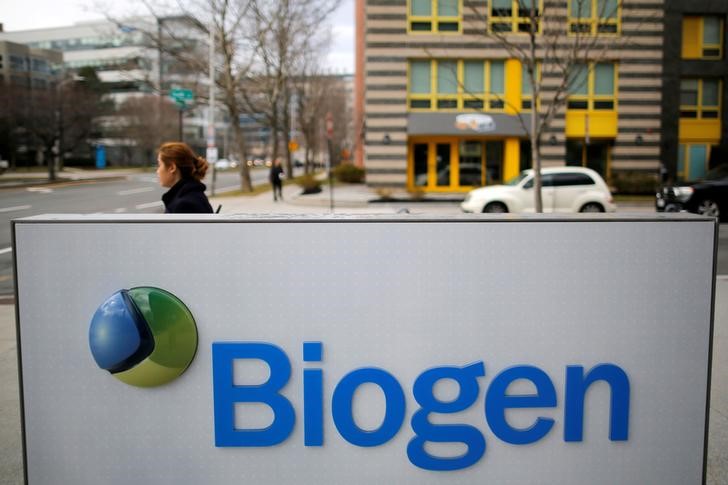Investing.com -- There is a higher potential for downside than upside in Biogen Inc's (NASDAQ:BIIB) shares, UBS analysts said Thursday, lowering their price target on the stock from $234 to $202.
The investment bank also revised its 2025 earnings per share (EPS) estimate to $17.38, down from $17.54.
According to UBS’s note, the new price target is accompanied by a reduction in the price-to-earnings (P/E) multiple from 12.75x to 11x. The reassessment follows a year-to-date decline of 30% in Biogen stock, contrasted with a 16% increase in the DRG index.
UBS analysts’ cautious stance is rooted in continued setbacks for Biogen's key growth asset, Leqembi, an Alzheimer's treatment. Despite some investors finding the stock appealing after its recent pullback, analysts point to multiple years of revenue decline and project a three-year revenue compound annual growth rate (CAGR) of only 0.1%, which is below the consensus estimate of 1.6%.
“While the investor sentiment based on our conversations is pretty negative, some investors like the stock post the pull-back,” analysts noted.
“The upside-case for BIIB per bullish investors is a) cheap valuation, b) turnaround potential in 2-3yrs, c) Alzheimer's large TAM, launch can eventually take off. However, on the contrary, we see more downside than upside in the story.”
The firm's analysis is based on a survey of 30 physicians, which led to a reduction in Leqembi's sales forecast for 2025-2028 by 15% to 19%, further below consensus expectations.
The survey of neurologists revealed several challenges for Leqembi, including a constricted funnel due to administrative burdens and concerns about significant side effects.
The anticipation of competing data from GLP1 in 2025 and the expectation that Eli Lilly (NYSE:LLY)'s Kisunla will outpace Leqembi by year-end 2026 add to the headwinds facing Biogen. Neurologists also predict that Kisunla will achieve 55% to 60% market share by the end of 2025 and 2026, respectively, overshadowing Biogen's product.
UBS’s report also highlights broader issues within Biogen's portfolio. The firm believes that the growth narrative for Biogen is fundamentally challenged, noting that the U.S. launch of Skyclarys is unlikely to drive significant growth in coming quarters.
Moreover, the Multiple Sclerosis (MS) portfolio is expected to persistently decline due to branded and generic competition, with a projected three-year forward CAGR at -14%, compared to the consensus of -12%. The crowded MS market and shifts in standard of care, particularly towards BTK inhibitors, are identified as contributing factors to the decline.
